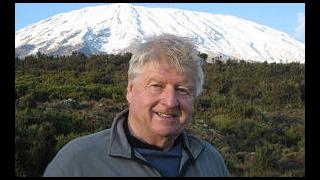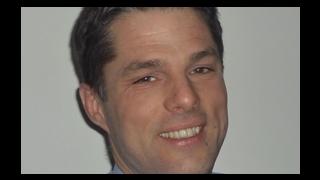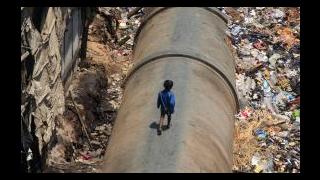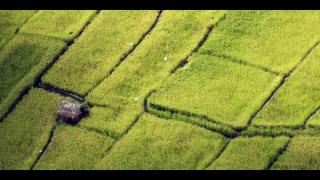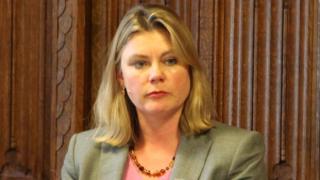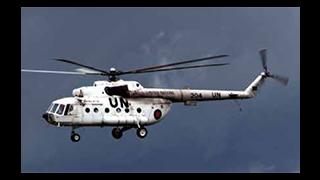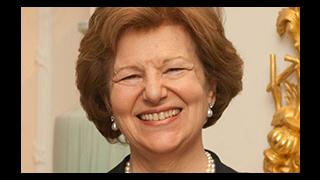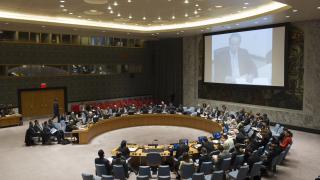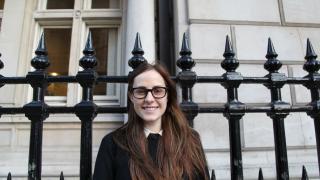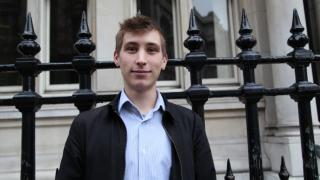
From 1991 to 1997, Rolf Ekéus was Executive Chairman of the UN Special Commission on Iraq (UNSCOM), the body created following the First Gulf War to ensure that Iraq complied with the Security Council’s requirement that the country give up its weapons of mass destruction.
UNSCOM faced difficulties from the start. The Iraqi government made an initial declaration under the weapons inspection regime imposed by the Security Council’s ceasefire resolution, but this was incomplete and obscured the extent of the country’s production capabilities. The weapons inspectors, who were repeatedly denied access to certain sites, were later told that some weapons had been destroyed “in secret”, causing a major verification issue.
“In spite of various confrontations between UNSCOM and Iraq, the disarmament work [moved] forward in a steady pace,” says Ekéus. Indeed, UNSCOM managed to destroy key chemical weapon facilities and force the Iraqi regime to admit to the existence of its biological programmes. “[These] programmes had been kept secret by Iraq for years, but it was a brilliant, almost emotional effort by UNSCOM’s group of senior scientists that broke the net of secrets around Iraq’s biological weapons,” the Swedish career diplomat adds. On the nuclear front, the International Atomic Energy Agency (IAEA) reported in 1997 that there were no indications that Iraq retained any physical capability for the production of weapon-usable nuclear material in amounts of any practical significance.
By 1998, Ekéus says, “we were certain that Iraq’s prohibited weapons capabilities had been eliminated”. At that point, some Security Council members wanted to declare Iraq officially disarmed but the US and UK resisted. Moreover, both UNSCOM and the IAEA considered their work to be unfinished, citing a lack of full disclosure by Iraq on areas such as germ warfare and chemical weapons production equipment, as well as a lack of archival material.
“The absence of UNSCOM and the IAEA made it necessary for governments to rely upon respective intelligence services for information about activities in Iraq,” says Ekéus. “Governments’ intelligence was meagre and … based more on assessments and guesswork about Saddam Hussein’s intentions than on their own shaky weapons intelligence. I have now had the opportunity to read the translation into English of the Saddam Tapes – like Nixon he taped his conversations with his top staff – and it is clear that no plans for the renewing of a Weapons of Mass Destruction (WMD) programme were under consideration.”
Much of what UNSCOM had found out in the early 1990s was confirmed in 1995 by the Iraqi defector Lieutenant- General Hussein Kamel, who had been responsible for Saddam’s weapons programmes. His testimony was invoked by then-US Secretary of State Madeleine Albright, and later by the Bush Administration, although he himself believed Iraq’s WMD had been destroyed. Kamel was killed when he returned to Iraq in 1996.
Ekéus feels that the US government knew in 1997 that his team was probably going to report to the Security Council that the weapons part of the ceasefire resolution had been implemented, and that subsequently the oil embargo and other sanctions on Iraq could be eased. “This did not at all suit [then-President] Clinton, as there had been growing momentum among the ‘neocons’ – Republicans and some Democrats – that it was time for regime change,” he says.
In spring 1997, Albright gave the commencement speech at Georgetown University during which she said that the sanctions would not be lifted.
“This was in my judgement a clear violation of the ceasefire resolution. When the prospects for lifting the sanctions were gone, the Iraqi side could see no major interest in co-operating with the inspectors. [Then-Iraqi Deputy Prime Minister Tariq] Aziz warned me that Saddam Hussein, after Albright’s statement, could have little interest in cooperating with UNSCOM as the US insisted on his removal no matter what.”
In July 1997, Richard Butler succeeded Ekéus. UNSCOM’s work continued throughout 1997 and 1998 but with increasing disruption. The Iraqi regime repeatedly restricted access to sites and refused the inspectors permission to enter.
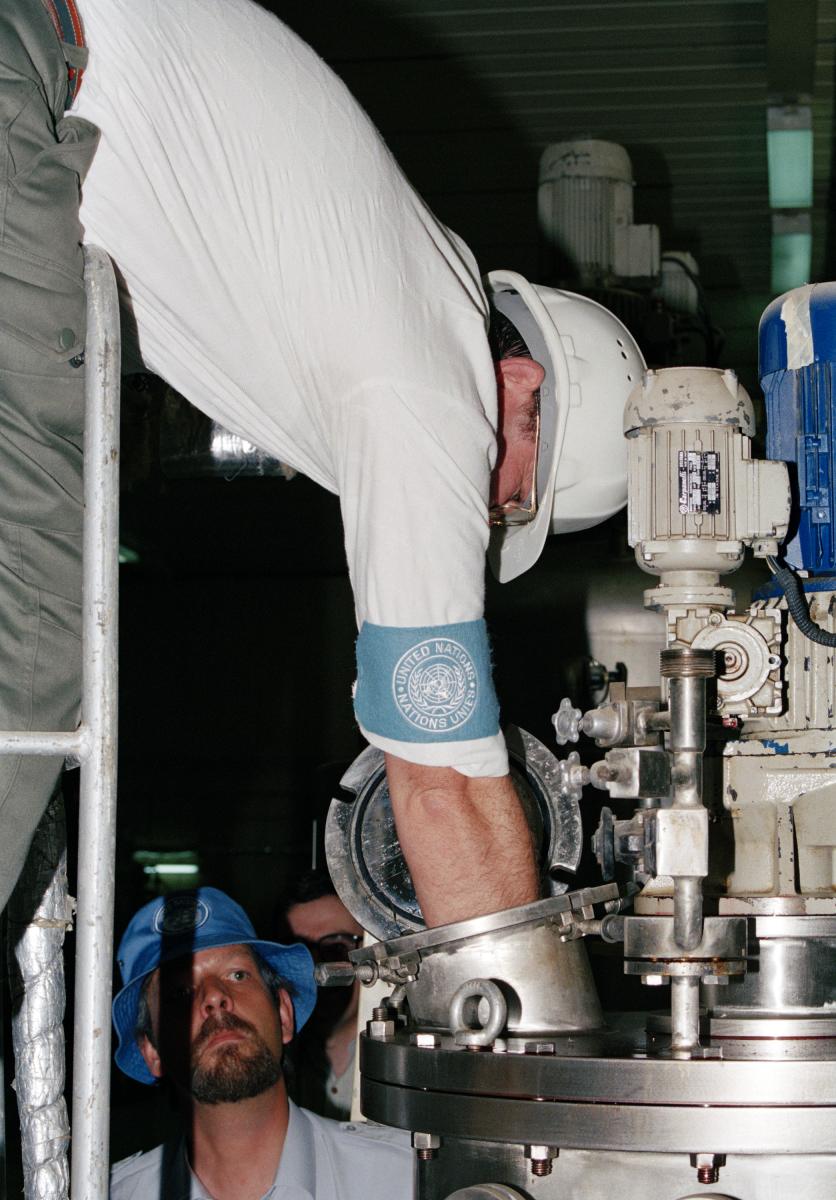
With mounting threats from Iraq to the inspectors and US-British air strikes on the horizon, UNSCOM withdrew in December 1998, after which four days of bombing took place. When the strikes ended, Iraq again refused to accept UNSCOM. The Security Council was not able to reach agreement on next steps until December 1999, when it created a new inspection commission. In the meantime, UNSCOM was dissolved, which Ekéus has previously described as a ‘blunder’.
It was not until November 2002 that inspections were resumed under Hans Blix and the UN Monitoring, Verification and Inspection Commission (UNMOVIC). Two months earlier, then-President Bush had described the regime as “a grave and gathering danger” in a speech to the UN General Assembly. However, in March 2003, Blix reported that Iraq had accelerated its co-operation, and that his inspectors needed more time to verify its compliance.
Around that time, Ekéus was involved with a last-ditch effort to avoid the war. He thought the probability of renewed production was small, but could not be excluded. “That was why I, together with Jessica Mathews, Director of the Carnegie Endowment in Washington, and Charles Boyd, just-retired four-star general from the Pentagon, instead of an invasion proposed what we called ‘intrusive inspections’ with military back-up, as a superior alternative to invasion.”
General Boyd acknowledged in September 2002 that this was a complex and difficult proposition – one that “only becomes attractive when you compare it with the complexity of assembling an invasion force for the purposes of a regime change in a country that is in possession of weapons of mass destruction”.
The plan was endorsed by then-UN Secretary- General Kofi Annan, and supported by France, Norway and Germany. “General Boyd and I were invited to the White House where we briefed the Deputy National Security Adviser Stephen Hadley and his team about the plan, and became subject to a sharp cross-examination,” Ekéus recalls.
Just over a week later, the US and its allies launched their invasion of Iraq. The impacts of this decision are still unfolding, a decade on, and influencing policies in and towards the region.
What has been forgotten, however, are the achievements of UNSCOM and the IAEA in eliminating virtually all of Iraq’s residual nuclear, biological and chemical programmes. “To me personally,” Ekéus says, “the lack of appreciation of the success for the UN with the complete disarmament of Iraq in accordance with the ceasefire resolution is the greatest disappointment.”
Alexa van Sickle is an assistant editor at the International Institute for Strategic Studies
Photo: © UN Photo/H Arvidsson. Biological weapons inspectors take samples from fermenters at a single cell protein facility at Al Hakam, Iraq, in 1991.

